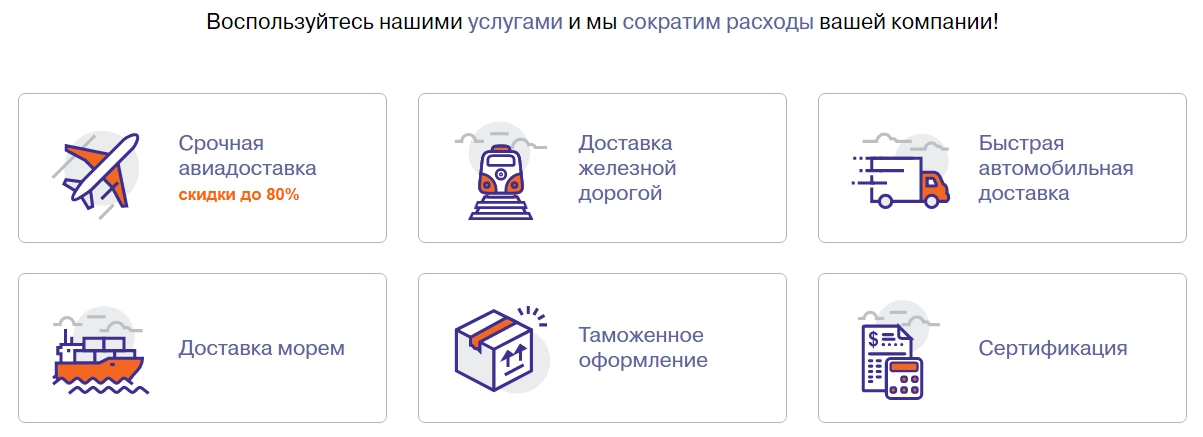How Self-operating Technologies are Reshaping Goods Logistics
How Self-operating Technologies are Reshaping Goods Logistics
Blog Article
The logistics field, particularly shipment shipping, is undergoing a groundbreaking shift, driven by the unwavering progress of AI-powered solutions. As businesses compete for productivity and swiftness in delivery processes, robotization stands at the helm of this innovation, redefining how goods are shipped across the globe. From self-driving transporters to smart tracking technologies, the dynamism of this field is unmistakable, offering significant upgrades in velocity, reliability, and affordability.
Enhancing Productivity with Mechanization
At the center of this technological surge is the implementation of automation in cargo delivery systems. Old-fashioned methods often failed under the pressure of lagging processes and human error. However, modern automated systems deliver advanced solutions that enhance operations.
One major improvement is in the realm of aerial delivery, where autonomous technology assists in coordinating multi-layered supply chain tasks that entail pathway planning and aviation traffic control. This not only speeds up the workflow but also enhances safety by reducing potential manual errors.
Advanced surveillance features are another boon. Today’s tech enables for real-time tracking of shipments, which provides companies and end-users informed about the location of their items round-the-clock. This transparency is invaluable in building trust and dependability in logistics shipping solutions.
Reducing Overheads and Optimizing Regulatory Processes
AI-powered systems advances into the intricate procedures of customs processing, traditionally a obstacle for cargo logistics due to its complex protocols and potential setbacks.
Contemporary automated technologies integrated with data-driven insights technologies can rapidly process massive datasets of records and ensure compliance with legal frameworks more rapidly than in the past. This reduction in processing duration lowers on operational expenditures substantially, demonstrating a direct cost-benefit that businesses can leverage.
Transforming Freight Management with Big Data
Moreover, the implementation of data analytics restructures the method toward cargo handling and customs. By analyzing historical data and current market shifts, AI-powered technologies forecast bottlenecks and enhance processes to be more consistent and seamless.
Enterprises observing live information can make well-calculated decisions that automatically mitigate risks associated with customs delays.
The Environmental Perspective
Self-operating solutions also enhance significantly to ecological responsibility in freight logistics. More precise and effective route planning minimizes avoidable resource expenditure and cuts down harmful emissions.
Automated delivery trucks are progressively aligned with renewable energy sources and hybrid energy, synchronizing cargo transport strategies with widespread green targets.
Enhancing End-User Loyalty
The AI-driven technology optimizes not just cargo handling productivity but also customer satisfaction. The capability to monitor orders in as they happen, face reduced setbacks, and appreciate lowered fees enhances customer interaction positively.
Rapid, clear, and efficient shipping systems are more expected to build loyalty and continuous orders, demonstrating that modern innovation is indispensable in modern-day cargo delivery operations.
Moreover, as AI systems execute mundane operations more seamlessly, businesses can redirect human resources to sectors requiring critical thinking and decision-making, thereby enhancing customer quality holistically.
Facing Ahead: The Self-Operating Horizon
The revolutionary effect of automation in logistics transport ensures an dynamic outlook for freight management. As businesses proceed to utilize these systems, they enhance their market position by offering quicker, risk-free, and more cost-effective transportation approaches.
Sustainability developments further extend the appeal of AI-powered frameworks, integrating industry methods with sustainable initiatives.
An Innovative Age in Logistics Delivery
In summary, the implementation of machine-powered technologies in freight transport unleashes a myriad of prospects focused on making logistics not only quicker but also more secure and less costly.
The tactical leveraging of Big Data in simplifying customs processes further highlights the performance of self-operating frameworks in redefining traditional logistics landscapes.
Automation: The Future of Cargo Shipping
Cargo transport is moving boldly into a modern era led by self-operating systems—a reflection to mankind’s continuous quest of innovation.
With ongoing innovations, the capability to reshape international business dynamics continues, indicating an promising pathway towards an streamlined and optimized horizon in cargo delivery.
More info about tamozhennoe oformlenie go to our resource.